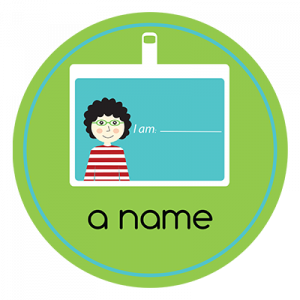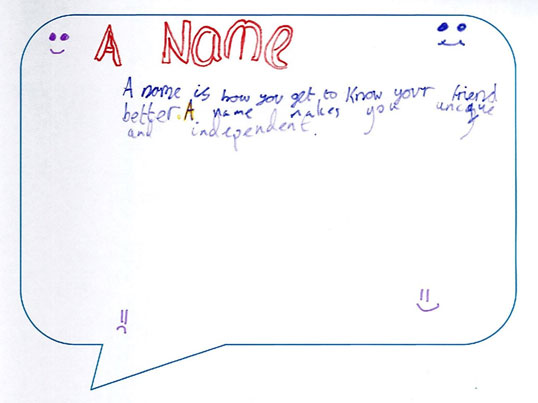You are here:
A Name
What does this mean?

It’s your right to have a name and an identity.
The Government should know who you are and have a record of your birth.
By registering your name on your birth certificate, you are given a Personal Public Service number. This is your unique identification number.
EXAMPLE: If you didn’t have your birth certificate or PPS number, you wouldn’t be able to register with a local doctor or go to school.

Learn more about this right
Do I have this right in Ireland?
- UNCRC, article 7: It’s your right to have a name, and this should be officially recognised by the Government. You have the right to a nationality (to belong to a country).
- UNCRC, article 8: It’s your right to have an identity – an official record of who you are. No one should take this away from you.
- Under the Gender Recognition Act 2015, if you are 16 or 17, it’s your right to change your gender and your name with your parent’s consent through the courts. -Under the Child Care Act 1991 and the Children Act 2001, it’s your right that your name doesn’t appear in any media if your parents are in court regarding your custody arrangements, or if you are before the courts for criminal reasons. This protects your identity as a child.
- Under the Civil Registration Act 2004, it’s your right that your name and identity be registered by your parents with the State within 3 months of your birth.
Doing a project?
- A child’s birth certificate records things like the full name of the child, the names of the child’s parents, and where and when a child is born.
- A birth certificate is needed for things like getting a passport and going to school.
- The surname of a child can be changed in the Register of Births. It is easier to do this when both parents agree to allow this change of surname.
- The surname of a child can also be changed by deed poll.
- Children aged between 14 and 17 years can make use of the Deed Poll themselves, but need the consent of both parents. Where a child is under the age of 14 years, one of the child’s parents must fill out the Deed Poll with the consent of the other parent.
- According to a BBC article, in some countries certain names are bannedand parents are not allowed to name their child these particular names, for fear of future embarrassment for the child.
- Some social media platforms, like Facebook, have a real name policy as they believe that by using your real name, you are more likely to behave responsibly online.
Links to other organisations
- Cartoons for Children’s Rights – Watch two short cartoons about the right to a name and a nationality, made for Unicef’s Cartoons for Children’s Rights initiative – here and here
- Humanium– Find out more about children’s right to an identity, which includes a right to a name and nationality


